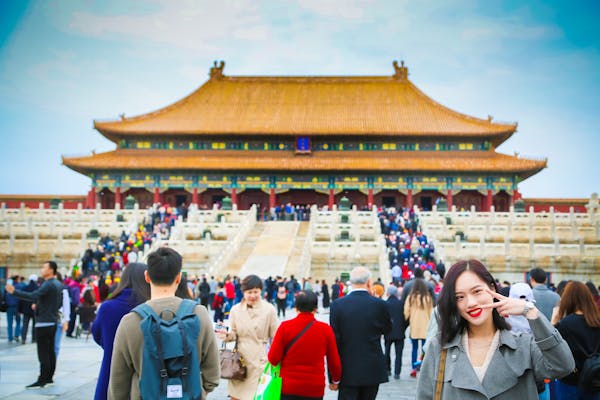Chinese AI Sector Eyes Huawei’s Powerful 910C Chip
In recent months, one name has been making waves again in China’s tech world — Huawei. This time, it’s not about smartphones or 5G. It’s about something smaller, but far more powerful in today’s digital age: AI chips.
Huawei has introduced a new chip called the Ascend 910C, and it’s quickly grabbing the attention of AI startups across China. Why? Because it might help solve a big problem they’ve been facing for years.
Let’s break it all down in simple words.
Why AI Chips Matter So Much Right Now
Before anything else, it’s good to understand why chips are so important in the world of artificial intelligence.
Think of AI like a super-smart robot brain. To do anything — like recognizing voices, scanning photos, or making suggestions — it needs huge amounts of data and very fast computers to learn from that data.
This is where chips come in.
Chips are the tiny pieces inside computers and servers that do all the hard work. But not just any chip will do. AI needs special chips that can process millions of things at once, super fast. These are called AI accelerator chips.
Until recently, many Chinese AI companies relied on foreign chips — especially from U.S. companies like NVIDIA. But due to political tensions and export bans, getting those chips has become harder and, in some cases, impossible.
So now, Chinese companies are looking inward — and Huawei’s new chip might be the answer.
What’s So Special About Huawei’s 910C Chip?
Huawei’s Ascend 910C is part of its effort to build world-class technology inside China. It’s designed to do exactly what AI developers need — train smart systems, process massive data, and run machine learning tasks quickly.
Here’s what makes it stand out:
- Built in China: Unlike NVIDIA chips, Huawei’s chip is made locally. This makes it easier for Chinese companies to buy and use without fear of foreign restrictions.
- High performance: Huawei says this chip is fast enough for large AI models. It’s not just a backup option — it could become the main choice.
- Backed by a big player: Huawei is still one of the most powerful tech companies in China. If it supports this chip, that means solid infrastructure and updates will follow.
What Startups Are Saying
Many small and mid-sized AI startups in China have been struggling with limited access to foreign chips. They’ve had to delay projects or reduce the size of their AI models.
But now that the 910C chip is available, interest is growing fast.
Some companies are already testing it. Others are preparing to shift from foreign chips to Huawei’s system. For many of them, it’s not just a tech decision — it’s also about survival and long-term planning.
“If we can’t buy U.S. chips, we have to look at home,” one startup founder reportedly said. “Huawei might not be perfect yet, but it’s here — and that means something.”
Huawei’s Journey Back to the Spotlight
Let’s not forget: Huawei has had a tough few years.
After U.S. sanctions hit in 2019, the company lost access to some of the most important parts of its business — including chip-making tools and software. Many thought it would fade from the global stage.
But Huawei didn’t back down. Instead, it started investing more in research, development, and local alternatives. The 910C chip is one result of that strategy.
It shows that Huawei is still fighting — and still innovating.
What This Means for China’s AI Future
China has big goals when it comes to artificial intelligence. It wants to be one of the world’s top AI powers by 2030.
To do that, it needs smart people, lots of data, and — most importantly — access to powerful tools. Chips like the 910C are exactly that kind of tool.
If more companies can build and grow using homegrown hardware, it brings China one step closer to tech independence. That’s a huge deal.
It also helps create a stronger local tech ecosystem. Startups won’t have to depend on foreign suppliers as much. That gives them more freedom to experiment, build, and scale up.
Not Everything Is Easy Yet
Of course, this doesn’t mean all problems are solved.
Even with a strong chip, there are still challenges:
- Some software doesn’t work well with new hardware. AI systems often need time to adapt to new chips.
- Production levels may be limited. Huawei can’t yet make chips as fast as global giants.
- There’s still a gap in technology. Even with progress, Huawei’s chips may not yet match the absolute best from companies like NVIDIA.
But the important thing is that momentum is building.
Final Thoughts
Huawei’s 910C chip might not be a magic bullet, but it’s a big step forward for China’s tech industry. It gives AI developers a new path, one that’s less dependent on foreign supply chains and more focused on local innovation.
For the many startups trying to grow in a complex world, this chip could make a real difference. It’s not just about speed or power — it’s about staying in the game.
As China pushes toward AI leadership, tools like the 910C will help pave the way. And whether or not it becomes the number-one chip in the world, it’s already doing what matters most — giving hope, building confidence, and opening new doors.



